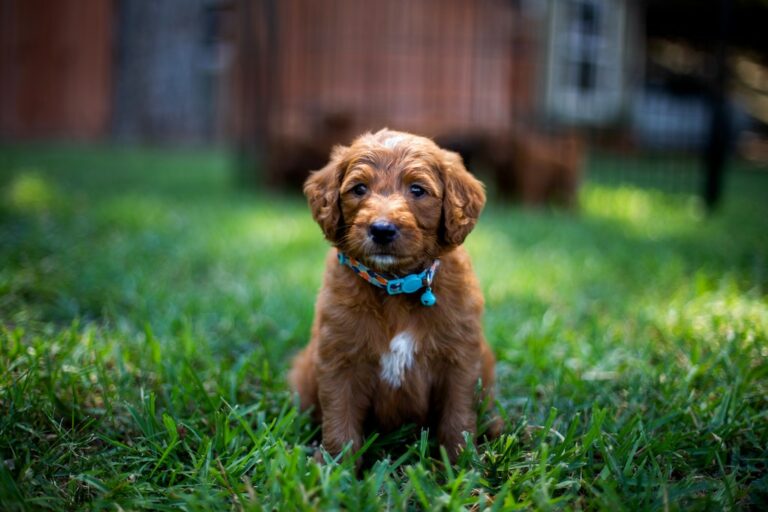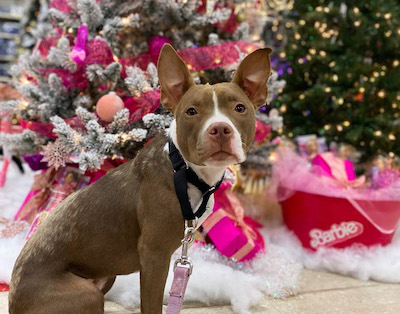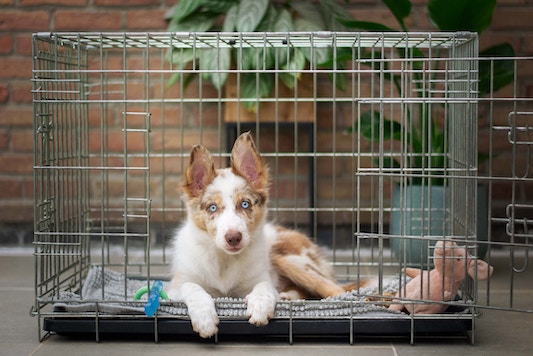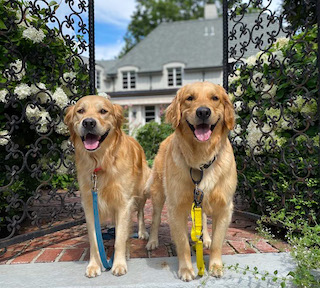Bringing a puppy home is full of so many emotions and questions. You buy all of the supplies they need, read all of the puppy 101’s, and then it’s time to pick up your newest family addition. By the time you get your puppy home, we know it can feel exciting, yet overwhelming at times. With bonding, socialization, housebreaking, and general manners to work on, when do you start training? And how much time should you spend training your puppy?
Starting Expectations For Your New Puppy (8-10 Weeks)
When we talk about training, it’s important to note that this doesn’t or shouldn’t only refer to “sit” and “stay”. Potty training, socialization, and crate training are equally important for your puppy to establish a great foundation. All of these can begin at 8 weeks of age, if not sooner!
From 8-9 weeks of age, we recommend working on play biting, chewing, jumping, and general manners. We typically don’t hear these behaviors being a concern until 10-14 weeks of age, however, getting a head start on these behaviors can help prevent them from becoming more problematic. Basic obedience behaviors such as sit, down, come, and leash walking can also be started as early as 8-9 weeks of age if your puppy is ready!
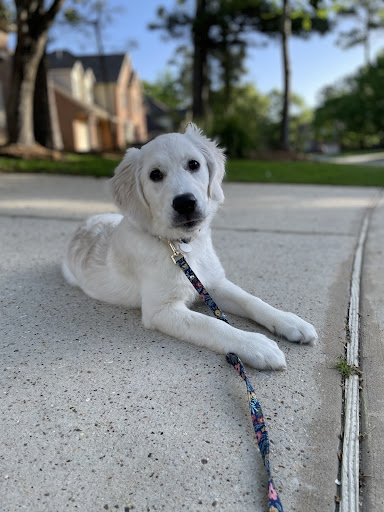
How much time should I spend in a day training my puppy?
The answer here can vary based on the age of your puppy and your overall goals. As we discussed above, you can absolutely get a jump start on many of your puppy’s socialization and training sooner than later. In general, consistency is key! However, we don’t necessarily recommend focusing on how much time you spend training your puppy in those early weeks versus how you are spending the time training.
Most puppies from 8-10 weeks of age simply don’t have the capacity to work on higher-level obedience. Not only do they tend to be more sleepy, but their attention spans are also less at this age. For these reasons, we recommend keeping training sessions short and sweet.
Obedience training for young puppies
If you are working on obedience training, keep sessions to no more than 20-30 minutes and split them up during the day. We also recommend varying what you are working on in your training sessions to keep it fun and interesting for your puppy. You may work on crate training for just a few minutes a day and then work on leash walking for another 10 minutes and then sit for 5 minutes. Working on training a few minutes a day multiple times per week will lead you and your puppy on the road to success.
For behaviors such as potty training, manners, and socialization, you can absolutely (and we recommend that you) set aside time to work on these as well. With that being said, you’ll find for these, and for many aspects of training, you will be constantly working and reinforcing behaviors throughout the day as they naturally occur. For this reason, we recommend keeping little treat jars around the house in case you need to grab one during the day.
When it comes to advanced obedience, we find delaying until 3 and 1/2 months of age (14 weeks) or older gives them a little more opportunity to gain more mental and physical stamina. By this age, they should be able to withstand a 1-hour training session, if you so choose.
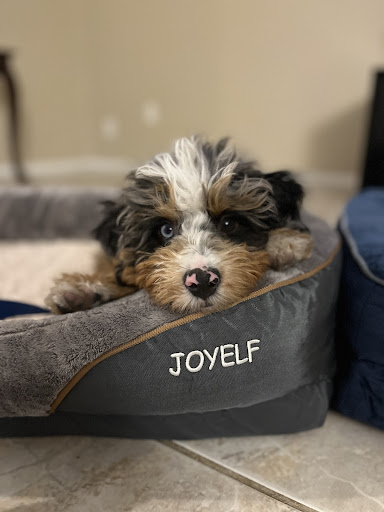
How much time would a professional spend training my puppy?
Between the ages of 8-13 weeks
If you are looking for a more private dog training experience, we recommend anywhere from 1-3 private one-on-one sessions with the professional in your home. These typically last about 1-hour, however they focus on providing you with the tools you need to address puppy manners and housebreaking goals.
Once your puppy has reached 14 weeks
We recommend a more intensive one-on-one private in-home program. These sessions are typically 1 hour long per day, and training occurs multiple days per week for several weeks in a row depending on your goals.
If after reading this, you feel as though you may not have as much time to spend training your puppy as you thought, we have many clients who choose to send their puppy for a board and train program as early as 8-10 weeks of age. With a board and train, there is naturally more flexibility if you choose a training program where your puppy goes directly into the trainer’s home. This allows the trainer the flexibility to break up training sessions to match your puppy’s needs and attention span. Once they come home after a few weeks, your puppy will be able to maintain longer training sessions with you, and the behaviors are already established.
If you are interested in learning more information about private training sessions with your puppy in your home, in ours, or if you just have a few questions for us, we are all ears!
